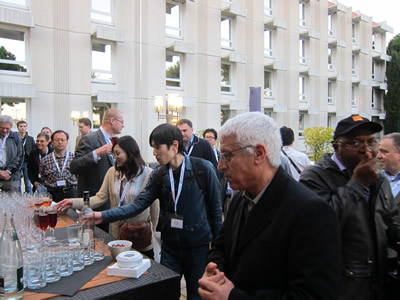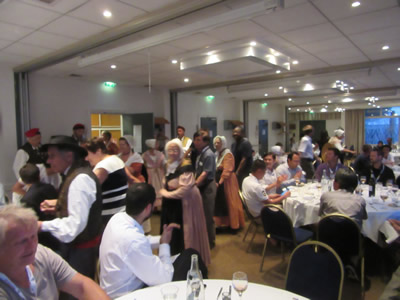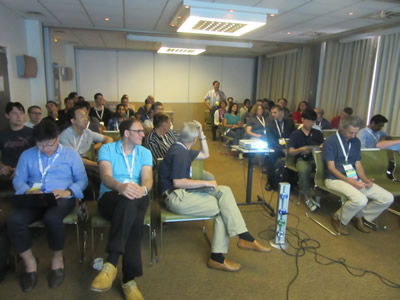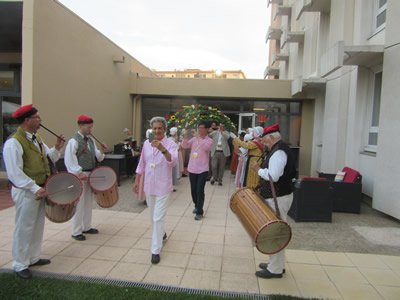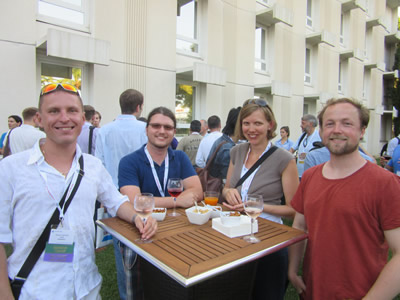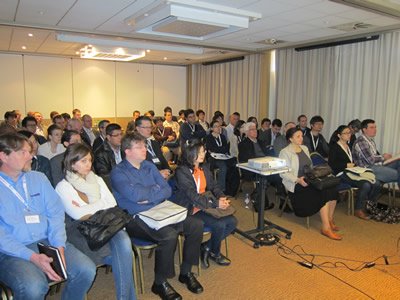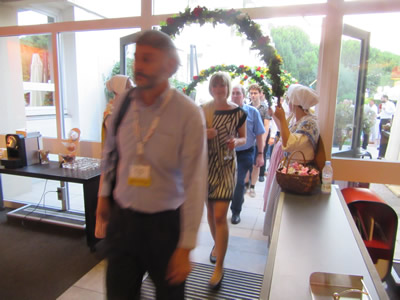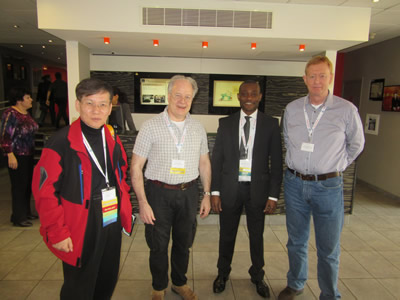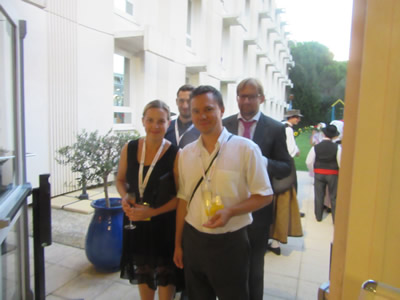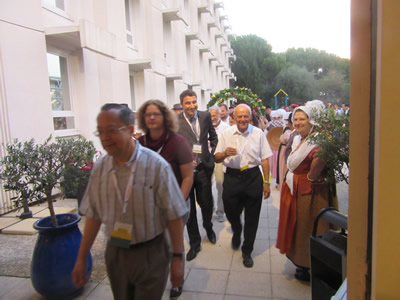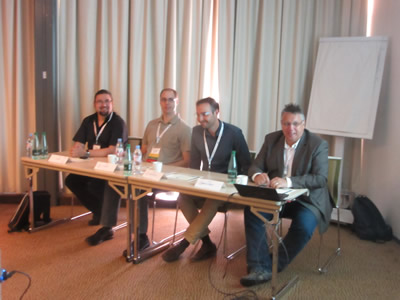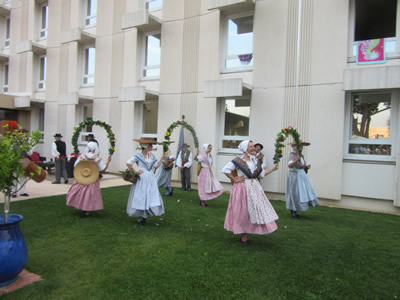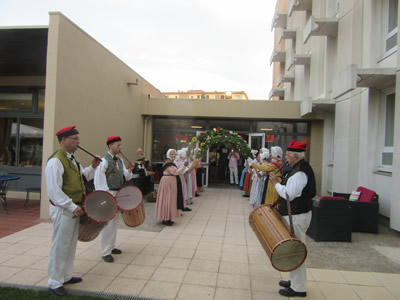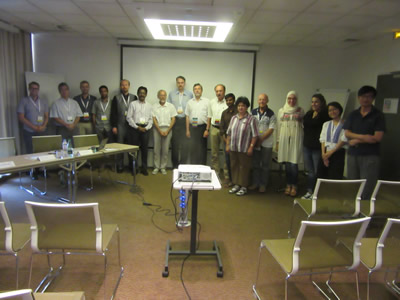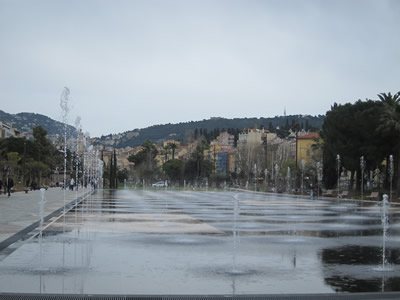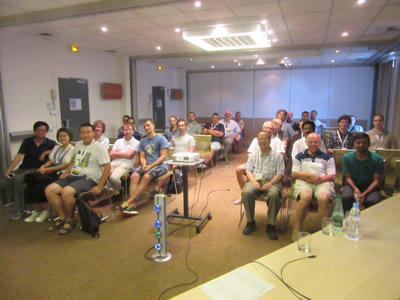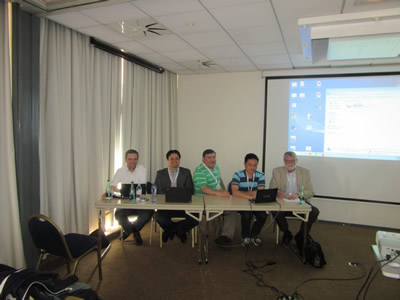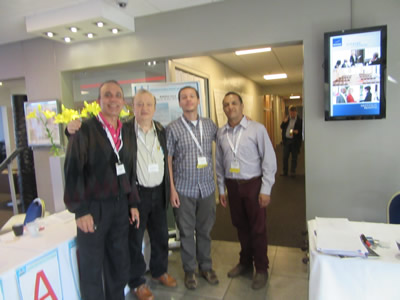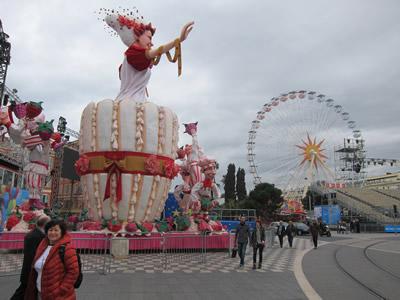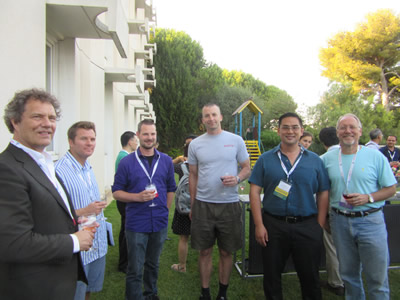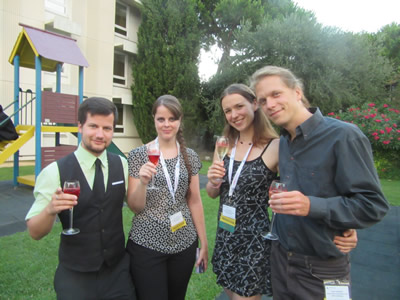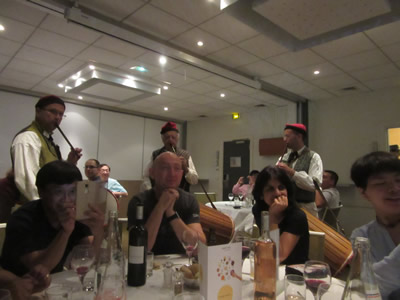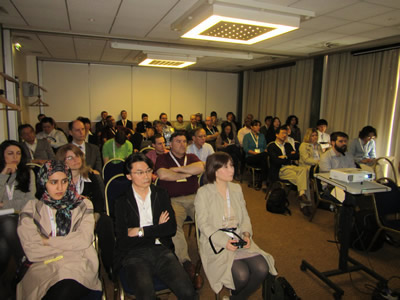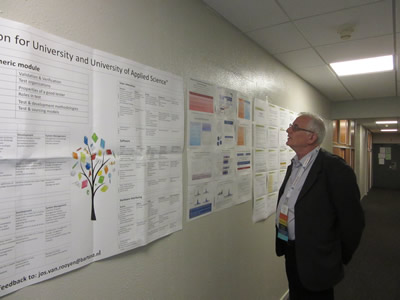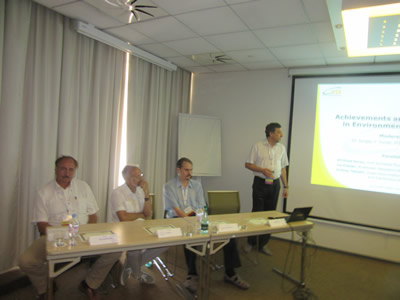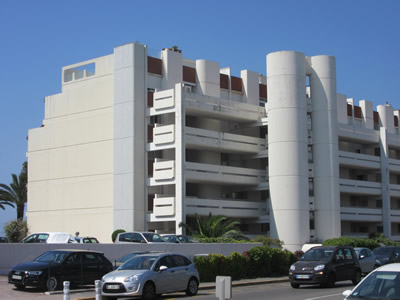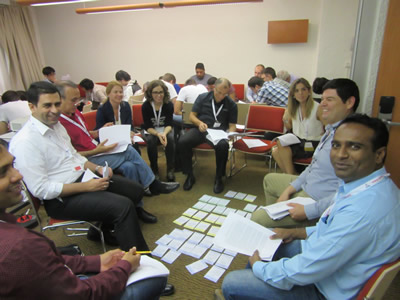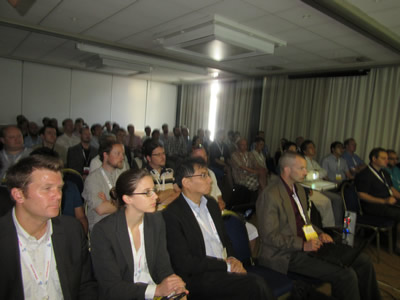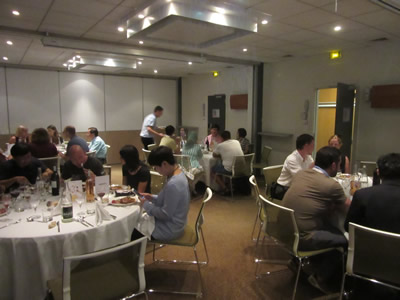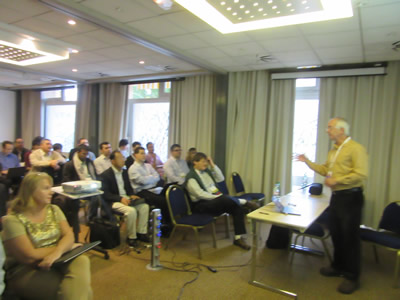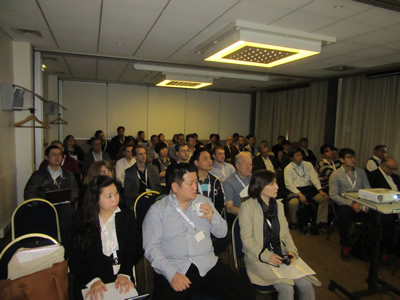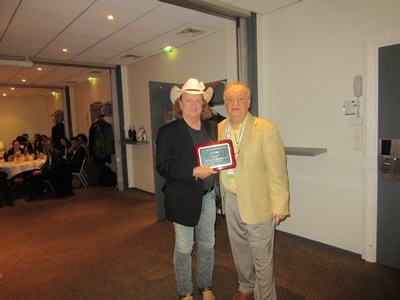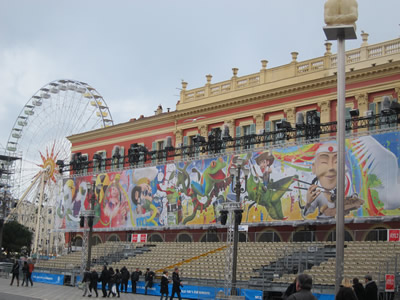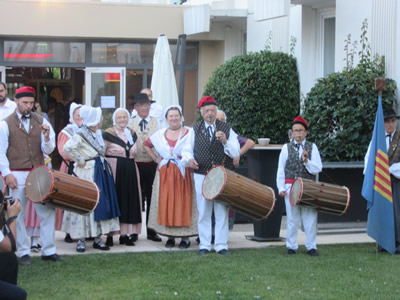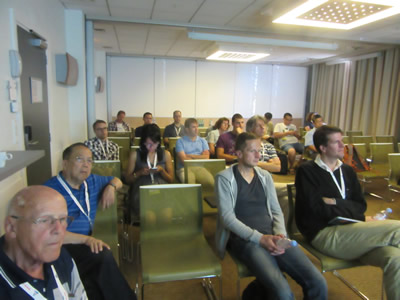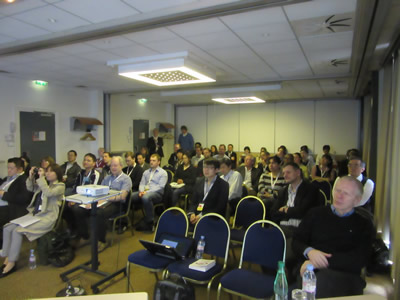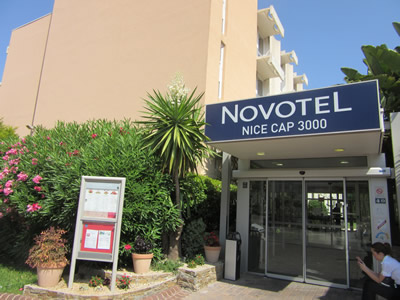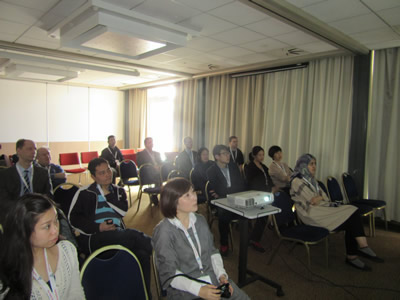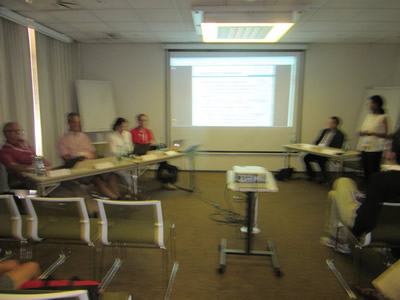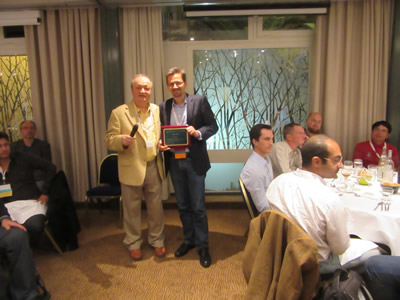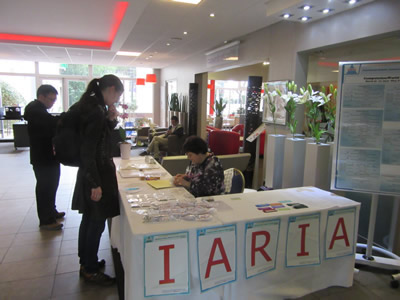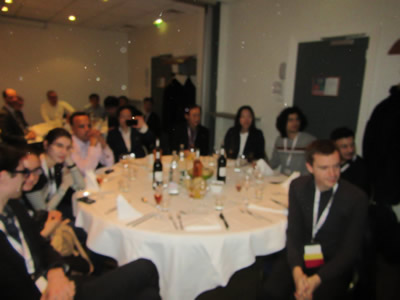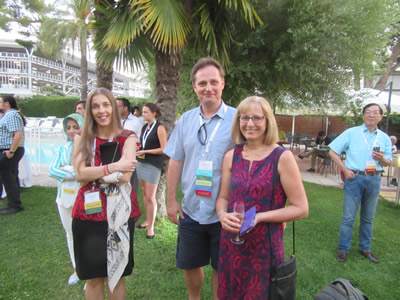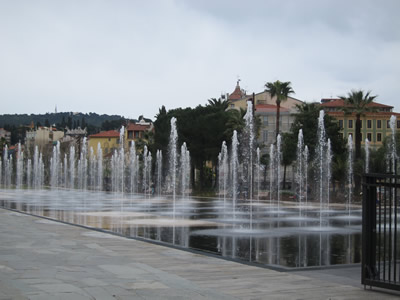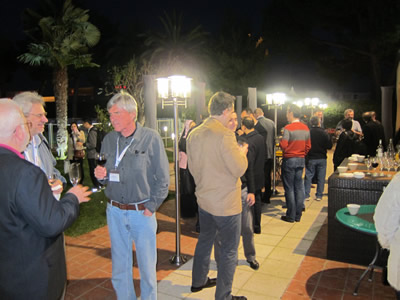MODERN SYSTEMS 2022 - International Conference of Modern Systems Engineering Solutions
July 24, 2022 - July 28, 2022
MODERN SYSTEMS 2022: Call for Papers
Onsite and Online Options: In order to accommodate a large number of situations, we are offering the option for either physical presence or virtual participation (pdf slides or pre-recorded videos).
We are witnessing a paradigm shift in systems engineering approaches caused by several facets of society and technology evolution. On one side, the mobility, the increase in processing power and the large storage capacity created the capacity needed to deliver services to everybody, everywhere, anytime. On the other side, new computation approaches, data gathering, and storage combined with advances in intelligence-based learning and decision-makin, allowed a new perspective for systems engineering.
The advanced pace of technological achievements is supported by Cloud/Edge/Fog-based computing, High Performance Computing (HPC), Internet of Things (IoT), Big Data, Deep Learning, Machine Learning, along with 5G/6G communications (integration of terrestrial/special systems) and mobility. As such, deployment, operation and technologies, integration, maintenance became a cornerstone for developing systems complying with functional and non-functional requirements.
MODERN SYSTEMS 2022 inaugurates a series of events focusing on systems development considering the variety of combination between requirements, technologies, and the application domains.
We expect contributions concerning the benefit of using new technological approaches in considering a larger spectrum of requirements in complex and maintenance (cost, resources) intensive systems and solutions in order to guarantee systems resilience, scalability, security, and so on, in a sustainable environment.
We solicit both academic, research, and industrial contributions. We welcome technical papers presenting research and practical results, position papers addressing the pros and cons of specific proposals, such as those being discussed in the standard fora or in industry consortia, survey papers addressing the key problems and solutions on any of the above topics short papers on work in progress, and panel proposals.
Industrial presentations are not subject to the format and content constraints of regular submissions. We expect short and long presentations that express industrial position and status.
Tutorials on specific related topics and panels on challenging areas are encouraged.
The topics suggested by the conference can be discussed in term of concepts, state of the art, research, standards, implementations, running experiments, applications, and industrial case studies. Authors are invited to submit complete unpublished papers, which are not under review in any other conference or journal in the following, but not limited to, topic areas.
All topics and submission formats are open to both research and industry contributions.
MODERN SYSTEMS 2022 conference themes:
Specifying the requirements of modern systems engineering
Frameworks and architectures (XaaS); Stateless and stateful microservices architecture; Modeling and engineering system-of-systems (a collection of systems with emerging capabilities); Software defined systems (abstraction layers, dependability, scalability, manageability); Systems design methodologies and techniques; Forms of decision explainability at the system level; Combination of vertical, horizontal and hybrid scalability; Model-based systems engineering; Combining model-based approach, agility, and micro-services for scalability; Methods and processes to deliver incremental capabilities via Agile systems engineering; Design patterns for micro-services-based design; Metrics for systems requirements; Formal methods (specification, proof, checking, abstraction); Languages for systems specifications (structures, behavior, concurrency, synchronization, temporal aspects, etc.); Formal hardware and software specification languages; Using formal and semiformal specification languages
Emerging requirements for advanced technologies
Cloud/Edge/Fog-based systems; Internet of Things (IoT)-based systems; Wireless/wired systems; (Big/Mobile) Data-oriented; Mobility and Cloudlets-based processing; Scalable databases and storage; 5G/6G communications; Deep Learning-based systems; Machine Learning-based decisions
System-wide type requirements
Online and offline systems; Open and closed systems; Centralized and distributed systems; Proactive and reactive systems; Real-time and embedded systems; Structural correlations and heterogeneity (for systems of systems); Seasonal patterns and long-time patterns (for decision making); Synchronization dynamics in real-world networks (for critical systems)
Systems engineering solutions for (non-functional) requirements
Solutions for systems robustness, safety, security; Solutions for fault-tolerant and resilient systems; Systems explainability on deep-thinking decisions; Analysis of stability/instability in modern systems; Systems interoperability (micro-services, systems of systems); Systems expandability/flexibility and (self)scaling systems; Sustainable development and energy-aware systems
Analytics for complex systems and with cost-intensive maintenance
Industry 4.0/5.0 systems; Avionic systems; Delay tolerant systems; Neuromorphic systems; Cognitive systems; Spiking neural networks and systems; Augmented reality systems; Health service delivery systems; Energy transportation systems; Manned and unmanned mobile systems (terrestrial, underground, underwater, space); Monitoring Eco-systems (agricultural, forest, etc.); Cyber-physical systems; Mission critical systems; Disaster recovery systems
Deployment/Maintenance Challenges
Cognitive management; Solution for interactive testing; Testing solution for self-managing syytems; Testing and validation of self-scalable systems; Managing the operational complexity; Load monitoring and scalability management; Monitoring and management of large-scale systems; Management of mission critical systems; Monitoring self-evolving ecosystems; Cyber-security protection; Manageability challenges; Decision explainability; Environmental sustainability
Deadlines:
Submission | May 22, 2022 |
Notification | Jun 15, 2022 |
Registration | Jun 22, 2022 |
Camera ready | Jun 25, 2022 |
Deadlines differ for special tracks. Please consult the conference home page for special tracks Call for Papers (if any).
INSTRUCTION FOR THE AUTHORS
Authors of selected papers will be invited to submit extended versions to one of the IARIA Journals.
Publisher: XPS (Xpert Publishing Services)
Archived: ThinkMindTM Digital Library (free access)
Prints available at Curran Associates, Inc.
How to submit to appropriate indexes.
Only .pdf or .doc files will be accepted for paper submission. All received submissions will be acknowledged via an automated system.
Contribution types
- regular papers [in the proceedings, digital library]
- short papers (work in progress) [in the proceedings, digital library]
- ideas: two pages [in the proceedings, digital library]
- extended abstracts: two pages [in the proceedings, digital library]
- posters: two pages [in the proceedings, digital library]
- posters: slide only [slide-deck posted on www.iaria.org]
- presentations: slide only [slide-deck posted on www.iaria.org]
- demos: two pages [posted on www.iaria.org]
FORMATS
Only .pdf or .doc files will be accepted for paper submission. All received submissions will be acknowledged via an automated system.
Final author manuscripts will be 8.5" x 11", not exceeding 6 pages; max 4 extra pages allowed at additional cost.
Helpful information for paper formatting for MS Word can be found here.
There is a community provided LaTeX template: the CTAN package iaria (with full IARIA formatting rules, including IARIA citation style, but for providing citation style it is tightly bound to pdflatex+biblatex+biber). In addition, there is also iaria-lite (not bound to pdflatex+biblatex+biber, but compatible with any TeX stack; thus, it cannot provide the IARIA citation formattings, but only the titlepage and content-related IARIA formatting rules). Based on the iaria package, there is a minimal working example as Overleaf template. When you are using the LaTeX templates, please still adhere to the additional editorial rules.
Slides-based contributions can use the corporate/university format and style.
Your paper should also comply with the additional editorial rules.
Once you receive the notification of contribution acceptance, you will be provided by the publisher an online author kit with all the steps an author needs to follow to submit the final version. The author kits URL will be included in the letter of acceptance.
We would recommend that you should not use too many extra pages, even if you can afford the extra fees. No more than 2 contributions per event are recommended, as each contribution must be separately registered and paid for. At least one author of each accepted paper must register to ensure that the paper will be included in the conference proceedings and in the digital library, or posted on the www.iaria.org (for slide-based contributions).
CONTRIBUTION TYPE
Regular Papers (up to 6-10 page article -6 pages covered the by regular registration; max 4 extra pages allowed at additional cost- ) (oral presentation)
These contributions could be academic or industrial research, survey, white, implementation-oriented, architecture-oriented, white papers, etc. They will be included in the proceedings, posted in the free-access ThinkMind digital library and sent for indexing. Please submit the contributions following the instructions for the regular submissions using the "Submit a Paper" button and selecting the appropriate contribution type. 12-14 presentation slides are suggested.
Short papers (work in progress) (up to 4 pages long) (oral presentation)
Work-in-progress contributions are welcome. These contributions represent partial achievements of longer-term projects. They could be academic or industrial research, survey, white, implementation-oriented, architecture-oriented, white papers, etc. Please submit the contributions following the instructions for the regular submissions using the "Submit a Paper" button and selecting the contribution type as work in progress. Contributors must follow the conference deadlines, describing early research and novel skeleton ideas in the areas of the conference topics. The work will be published in the conference proceedings, posted in the free-access ThinkMind digital library and sent for indexing. For more details, see the Work in Progress explanation page. 12-14 presentation slides are suggested.
Ideas contributions (2 pages long) (oral presentation)
This category is dedicated to new ideas in their very early stage. Idea contributions are expression of yet to be developed approaches, with pros/cons, not yet consolidated. Ideas contributions are intended for a debate and audience feedback. Please submit the contributions following the instructions for the regular submissions using the "Submit a Paper" button and selecting the contribution type as Idea. Contributors must follow the conference deadlines, describing early research and novel skeleton ideas in the areas of the conference topics. The work will be published in the conference proceedings, posted in the free-access ThinkMind digital library and sent for indexing. For more details, see the Ideas explanation page. 12-14 presentation slides are suggested.
Extended abstracts (2 pages long) (oral presentation)
Extended abstracts summarize a long potential publication with noticeable results. It is intended for sharing yet to be written, or further on intended for a journal publication. Please submit the contributions following the instructions for the regular submissions using the "Submit a Paper" button and selecting the contribution type as Extended abstract. Contributors must follow the conference deadlines, describing early research and novel skeleton ideas in the areas of the conference topics. The work will be published in the conference proceedings, posted in the free-access ThinkMind digital library and sent for indexing. 12-14 presentation slides are suggested.
Posters (paper-based, two pages long) (oral presentation)
Posters are intended for ongoing research projects, concrete realizations, or industrial applications/projects presentations. The poster may be presented during sessions reserved for posters, or mixed with presentation of articles of similar topic. A two-page paper summarizes a presentation intended to be a POSTER. This allows an author to summarize a series of results and expose them via a big number of figures, graphics and tables. Please submit the contributions following the instructions for the regular submissions using the "Submit a Paper" button and selecting the contribution type as Poster Two Pages. Contributors must follow the conference deadlines, describing early research and novel skeleton ideas in the areas of the conference topics. The work will be published in the conference proceedings, posted in the free-access ThinkMind digital library and sent for indexing. 8-10 presentation slides are suggested. Also a big Poster is suitable, used for live discussions with the attendees, in addition to the oral presentation.
Posters (slide-based, only) (oral presentation)
Posters are intended for ongoing research projects, concrete realizations, or industrial applications/projects presentations. The poster may be presented during sessions reserved for posters, or mixed with presentation of articles of similar topic. The slides must have comprehensive comments. This type of contribution only requires a 8-10 slide-deck. Please submit the contributions following the instructions for the regular submissions using the "Submit a Paper" button and selecting the contribution type as Poster (slide-only). The slide-deck will be posted, post-event, on www.iaria.org.
8-10 presentation slides are suggested. Also a big Poster is suitable, used for live discussions with the attendees, additionally to the oral presentation.
Presentations (slide-based, only) (oral presentation)
These contributions represent technical marketing/industrial/business/positioning presentations. This type of contribution only requires a 12-14 slide-deck. Please submit the contributions following the submission instructions by using the "Submit a Paper" button and selecting the contribution type as Presentation (slide-only). The slide-deck will be posted, post-event, on www.iaria.org.
12-14 presentation slides are suggested.
Demos (two pages) [posted on www.iaria.org]
Demos represent special contributions where a tool, an implementation of an application, or a freshly implemented system is presented in its alfa/beta version. It might also be intended for thsoe new application to gather the attendee opinion. A two-page summary for a demo is intended to be. It would be scheduled in special time spots, to ensure a maximum attendance from the participants. Please submit the contributions following the submission instructions by using the "Submit a Paper" button and selecting the contribution type as Demos. The Demos paper will be posted, post-event, on www.iaria.org.
Tutorial proposals
Tutorials provide overviews of current high interest topics. Proposals should be for 2-3 hour long. Proposals must contain the title, the summary of the content, and the biography of the presenter(s). The tutorial slide decks will be posted on the IARIA site.
Please send your proposals to tutorial proposal
Panel proposals
The organizers encourage scientists and industry leaders to organize dedicated panels dealing with controversial and challenging topics and paradigms. Panel moderators are asked to identify their guests and manage that their appropriate talk supports timely reach our deadlines. Moderators must specifically submit an official proposal, indicating their background, panelist names, their affiliation, the topic of the panel, as well as short biographies. The panel slide deck will be posted on the IARIA site.
Please send your proposals to panel proposal

